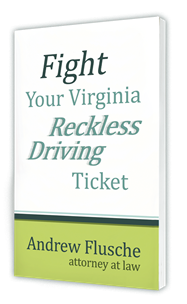Virginia’s New Expungement Law Explained
You’ve worked tirelessly to turn your life around, but a single charge from your past casts a shadow over job interviews, housing applications, or even your license. Maybe it was a misdemeanor from years ago, something you never imagined would follow you this far.
Now, you’ve heard Virginia has revamped its expungement laws. But what does this mean for you? Below, we outline the updates to the laws for Virginia expungement in 2025, including what’s new, who qualifies, and how to take the next steps toward a cleaner record.
Key Changes in Virginia’s Expungement Laws
Virginia’s system for sealing and expunging records has been completely transformed. In 2021, the General Assembly passed comprehensive reforms, making more people eligible and creating an automatic sealing process. The law has been changed each year thereafter, and it may continue to change before it becomes effective. The law currently includes:
- Automatic Sealing. Records will be automatically sealed after a waiting period for qualifying low-level misdemeanors, eliminating the need for a court filing.
- Broader range of offenses. If you meet other criteria, a broader range of offenses, including some misdemeanor and felony charges, may qualify for petition-based sealing.
- Distinguishing terms. The law now establishes the differences between expungement and sealing.
These changes are part of Virginia’s Clean Slate initiative, designed to give individuals with older or minor convictions a greater opportunity to secure housing, employment, and stability.
Unless it is changed or delayed yet again, the law will become effective July 1, 2026.
Who Is Eligible Under Virginia’s New Expungement and Sealing Laws?
The good news is that many more people now qualify for record relief than before. Whether you’re eligible depends on the type of offense, the final decision in your case, and how much time has passed since your conviction. You may meet the requirements when any of the following apply:
- If your charge was dismissed or resulted in an acquittal (expungement);
- If you were convicted of a qualifying Virginia misdemeanor, sealing can be available if you have completed all sentencing terms and waited the required time; or
- If you have a non-violent felony conviction, petition-based sealing may be available if you have incurred no new charges.
Waiting periods vary by offense and can range from seven years for Class 1 misdemeanors to 10 years for certain non-violent felony convictions. Shorter periods may apply for charges dismissed with prejudice or where the prosecution was granted a nolle prosequi.
Understanding the Difference: Expungement vs. Sealing
As stated, the law now differentiates between expungement and sealing, and offers those as two separate processes:
- Expungement. Completely removes the charge from public records. Requires a petition to the court and applies only to charges that were dismissed, dropped, or ended in a not-guilty verdict.
- Sealing. Limits who can see the record (hidden from employers, landlords, etc.). May be automatic or require a court petition, and applies to certain convictions.
Expungement removes the charge from public records while sealing limits who can access it. Both offer record relief, but only if your situation matches the applicable legal criteria.
What the Law Says About Felonies and Sealing
When the law takes effect in 2026, Virginia will allow you to seal some non-violent felony convictions, but not all. Under SB1466, convictions like shoplifting or drug possession may qualify if:
- There are no disqualifying offenses,
- All terms of the sentence have been completed,
- A law-abiding record has been maintained for at least 10 years,
- You have not already had two previous convictions sealed, and
- The court finds good cause to grant your petition.
More serious felonies, such as those involving violence, weapons, or sex offenses, are not eligible.
Why Record Sealing Matters
The impact of a sealed or expunged record goes far beyond legal status. It can:
- Improve your chances of getting a job,
- Help you pass background checks for jobs or housing applications, and
- Restore peace of mind and remove stigma from your past.
As Virginia ramps up the technology to handle the automatic sealing of lesser offenses and acquittals, it’s certainly possible that even more violations will be added to the sealable list.
Steps to Get a Virginia Expungement in 2025
Are you considering pursuing a Virginia expungement of a misdemeanor or non-violent felony? Or are you thinking of trying to get a conviction sealed? If so, here’s how to start:
- Identify which type of relief you may qualify for;
- Request your criminal history record from the Virginia State Police;
- Review your record for eligible charges;
- Determine whether you qualify for automatic sealing or must file a petition; and
- Speak with a defense attorney familiar with the record-sealing changes to understand your best course forward.
Sealing and expungement aren’t automatic for everyone, but a clean record may be possible.
Clearing Your Record with Our Help
At Flusche & Fitzgerald, we’ve built our practice on helping people defend themselves and protect their futures. We know Virginia’s criminal courts inside and out. With over 1,000 five-star reviews from previous clients and strong relationships with local courts and prosecutors, we provide every client with knowledgeable and supportive legal representation.
We don’t just handle cases—we help people move forward. We personally handle a limited number of expungements currently due to our full case load. If we cannot take on your matter, we would love to refer you to a colleague who can assist. Contact us today at 540-318-5824 to discuss your case and learn how we can help you.
FAQs
What Is the New Sealing Law in Virginia?
Virginia’s new sealing law, enacted in phases beginning in 2021 and expanded in 2025, allows specific misdemeanor and low-level felony convictions to be sealed from public view. It includes both automatic and petition-based processes.
What Is the New Law for Felons in Virginia?
When the law takes effect in 2026, certain non-violent felony convictions, such as drug possession or shoplifting, may be eligible for record sealing after 10 years. However, you must meet specific conditions and file a petition to make this happen.
What Are the New Criminal Laws in Virginia 2025?
Key changes to Virginia expungement in 2025 include expanded record-sealing eligibility, clarification on petition processes, and updates under SB1466. These changes are part of broader Clean Slate reforms to improve housing, employment, and access to other opportunities.
Resources
- Virginia Legislative Information Session, 2025 Regular Session, SB1466, link.
- Virginia 2021 Record Sealing Overview. Justice4All, link.
- Virginia Enacts Significant Record Reforms in 2025. Collateral Consequences Resource Center, link.
- Virginia will allow for some criminal records to be sealed next year. Virginia Mercury (2025), link.
- Start date delayed for law that would seal certain criminal charges from public record. WRIC (2025), link.




